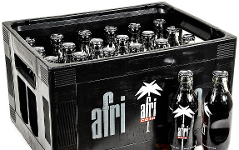Asahi
Asahi Cyber-Attack Disrupts Japan Operations
Japanese brewer Asahi suffered a cyber-attack that disrupted its order, shipment and customer service systems in Japan. It said there was no evidence of personal data leaks and its European operations, including the UK, remain unaffected. Asahi is investigating the incident and has not given a recovery timeline. The company previously listed cybersecurity as a key business risk.
Brands
Suntory To Reclassify Kinmugi As Beer
Suntory Spirits will reformulate its popular Kinmugi beverage to qualify as regular beer from late 2026. The decision follows phased tax cuts in Japan that will align beer and beer-like beverage rates at ¥54.25 per 350 ml. Kinmugi, which accounts for half of Suntory’s beer and beer-like drink sales, will see a slight price increase. Executive Tada Susumu said the move aims to revitalize the beer market and respond to changing consumer preferences.
Carlsberg
Carlsberg Britvic Launches Eco Packaging Upgrade
Carlsberg Britvic partnered with packaging specialist DS Smith to introduce a new “OTOR8” bag-in-box design that strengthens packaging, reduces weight and increases transport efficiency. The redesign allows 25% more boxes per pallet and cuts CO₂ emissions by about 50 tonnes annually on key delivery routes. It improves safety and warehouse storage by reducing leakage risks and optimizing space.
Carlsberg Marks 15 Years In Azerbaijan
Carlsberg’s more than 101 million manat (US$59 million) investment in Azerbaijan over the past 15 years supports production, supply chains and local agriculture. Managing Director Alius Antulis said the company helped transform Azerbaijan from a barley importer to a domestic producer of high-quality malt. Carlsberg committed an additional 30 million manat investment through 2029, following an earlier pledge completed ahead of schedule. The company employs over 250 people directly and supports more than 3,000 in related industries.
Carlsberg Expands Phu Bai Brewery In Vietnam
Carlsberg Vietnam inaugurated its expanded Phu Bai Brewery in Huế, now its largest production site in Asia. The US$90 million investment increases efficiency and sustainability, with new technology cutting water use by 20% and energy by 15%. The brewery aims for zero waste to landfill this year and net-zero emissions by 2028. Carlsberg highlighted strong ESG commitments, including advanced wastewater treatment and AI-based safety systems.
Companies
Carlsberg Plans ₹1,250 Crore India Investment
Carlsberg India will invest ₹1,250 crore over three years to expand its brewing and packaging capacity in the country. It includes a ₹500 crore greenfield brewery in Maharashtra and further expansions in West Bengal and Karnataka. Signed under a memorandum with India’s Ministry of Food Processing Industries, the investment aims to create jobs, boost local sourcing and increase raw material procurement. The company has also been in discussions with investment banks about a potential initial public offering of its Indian subsidiary. Carlsberg, India’s third-largest brewer, sees the market as a major growth opportunity as beer consumption rises with urbanization and higher incomes.
Carlsberg CEO Sees Kazakhstan As Growth Hub
Carlsberg CEO Jacob Aarup-Andersen said Kazakhstan is set to become one of the company’s top five global markets, following a $344 million investment in a new soft drink plant in the Almaty Region. The facility will produce up to one billion liters annually for Central Asia, under a PepsiCo license. Designed for energy and water efficiency, it will include a rail link to reduce transport emissions. Aarup-Andersen said Kazakhstan’s favorable investment climate and growing soft drink demand make it a key regional hub. The plant will source most inputs locally, supporting farmers and the sugar industry while creating 230 jobs.
Varun Beverages Sees Boost From GST Cuts In India
Varun Beverages expects higher demand for its water and juice products following recent GST reductions from 18% and 12% to 5%. Chairman Ravi Kant Jaipuria said the company will pass the savings to consumers and expand production to meet rising demand. The cuts cover about 30% of Varun’s volumes and are expected to stimulate consumption despite continued 40% GST on carbonated drinks. Varun is also expanding retail coverage by 8–10% annually, adding up to half a million new outlets. Margins remain steady at 20–25%, supported by new facilities and capacity expansions. The company anticipates demand recovery by the end of the quarter.
Carlsberg Opens IT Center In India
Carlsberg Group launched its first Global Capability Centre in Gurugram, India, as part of its digital transformation strategy. It will provide IT services, infrastructure and global application support, helping standardize and automate Carlsberg’s technology operations. Developed in partnership with IT services firm GSPANN, the GCC will also include a support team in Hyderabad. Carlsberg says the new hub will strengthen speed, agility and data use across its global business. The initiative aligns with its Accelerate SAIL strategy and reflects a growing trend of beverage multinationals establishing technology centers in India to drive innovation and efficiency.
Suntory CEO Resigns Amid Illegal Supplement Probe
Suntory Holdings CEO Takeshi Niinami resigned following a police investigation into his alleged purchase of potentially illegal supplements. President Nobuhiro Torii will continue to lead the group without an immediate replacement for the CEO. Niinami led Suntory since 2014 and recently also served as chairman after a management restructure. The resignation comes amid weaker financial results, with operating income down 30.6% in the first half of 2025 due to divestments and marketing costs. Suntory projects full-year revenue of ¥3.7 trillion.
Lao Brewery Extends PepsiCo Partnership
Lao Brewery Company, part of Carlsberg Group, renewed and expanded its partnership with PepsiCo for another 15 years, marking over five decades of collaboration. The agreement strengthens joint growth in Laos, where the companies market brands such as Pepsi, Mirinda, 7Up and Sting, and follows a recent expansion to include snacks and Lipton RTD tea. LBC’s managing director said the renewal reflects strong confidence in shared goals for innovation and sustainable development. Carlsberg now partners with PepsiCo in seven markets globally, with Kazakhstan and Kyrgyzstan joining in 2026.
Copyright 2026 Business360, Inc.

